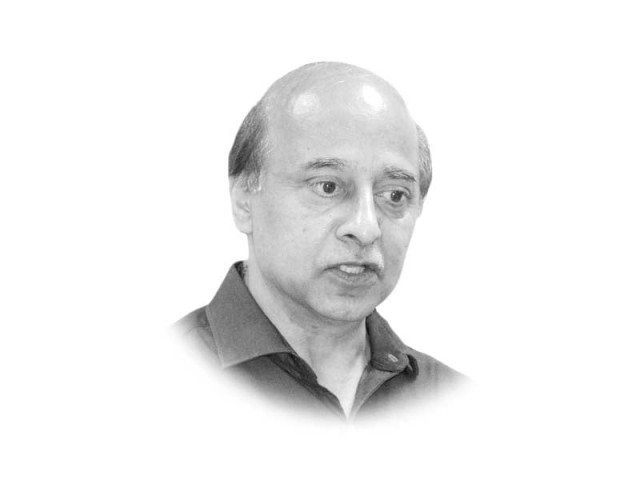Handling the crouching monster
Islamabad and Rawalpindi, no doubt, have to go a long way in countering terrorism and religious extremism

The writer heads the independent Centre for Research and Security Studies, Islamabad and is author of Pakistan: Pivot of Hizbut Tahrir’s Global Caliphate
Before Ajmal, another TTP commander Azam Tariq and his son also had fallen to the US-Afghan forces in Paktika on September 25. Similarly, a US drone strike in eastern Nangarhar province had taken out Omar Mansoor alias Naray, the alleged mastermind of the Army Public School (APS) attack in December 2014.
It is meanwhile clear that all those TTP terrorists had relocated from North Waziristan and Orakzai/Mohmand Agency to the greater Paktia region as well as Nangarhar following the launch of the Operation Zarb-e-Azb in June 2016. Hence, the drone-deaths in eastern Afghanistan of Shahidullah Shahid and Hafiz Saeed Khan, the so-called chief of Daesh Khorassan. Mullah Fazlullah, another instrument of instability, is also reportedly hiding somewhere in the eastern or northeastern mountains dividing Pakistan and Afghanistan and might soon suffer the same fate as did other TTP/Daesh leaders because he too lords over another anti-Pakistan terror group. Their elimination meant one worry less for Pakistan.
Similarly, the US Pentagon droned Mullah Akhtar Mansour, the Afghan Taliban chief, to death in May this year because he was seen as a big impediment to the Afghan peace process. He was killed on the Pakistani territory because he represented a threat to both, the US and the Afghan government.
If one were to go by this political construct, will the CIA venture to take out Hafiz Saeed of Lashkar-e-Taiba because he personifies horror and terror for India, the extremely valuable regional US ally? Given the ferocity of get-Hafiz-Saeed calls out of New Delhi, the USA and the common Indo-US-Afghan-chorus on the Haqqani Network, we must not rule that out. The three are singing in unison as far as diplomacy is concerned — regardless of the 95 day brutal siege and the ruthless string of persecution in the Indian-administered Kashmir. Geo-political interests trump human rights and violations of the UN resolutions. Lives of humans demanding freedom matter little when weighed against geo-politics and commercial interests. East Timor got the plebiscite. But Kashmiri terrorists" don't deserve it, it seems.
We may refuse to acknowledge the crouching monster that is towards us, but the expectation certainly is of “swift and credible action” against all those who threaten the Indo-Afghan-American interests. And the string of latest events across the political and media landscape gives us enough food for thought that it may not take too long for expectations to turn into direct action.
But the big question begging answers is can Pakistan simply follow suit — as desired by outsiders — and turn this territory into another Afghanistan, Iraq, Syria or Libya? Can it afford to trigger a civil-war like situation all over Pakistan only because outsiders refuse to a) acknowledge the state is undergoing a gradual, though extremely difficult and challenging change, and b) understand domestic socio-political dynamics involving tens of millions of religious zealots spread all over the country?
Islamabad and Rawalpindi, no doubt, have to go a long way in countering terrorism and religious extremism. The National Action Plan continues to cry for real implementation. Both civilian and military institutions lag far behind in refocusing on the soft power of the state to neutralise forces of obscurantism and defeat terrorists masquerading as proponents of the trans-border ideologies. The civilian-military governance-security apparatus beyond doubt suffers from a number of issues that are symptomatic of a typical third world country such as Brazil and India as well. Much of it we owe not only to the forces of status quo i.e., military, aristocracy, business and bureaucracy but also to geo-politics that sucked the country into two major Afghanistan-focused ventures (the anti-Soviet jihad and the questionable global war against terrorism). On both occasions the icons of developed democracies i.e., USA and most of major NATO member countries, lapped up two military dictators in Pakistan to pursue their geo-political objectives. Expecting this country to extricate itself from this cobweb of compromised national ruling elites and the consequences of western geo-politics is unreal and motivated. If China stands by, Pakistani ruling elites must calibrate and sequence the way forward their way, and not chart a path that can be socio-politically disastrous. We have plenty of examples to back up this caution.
Published in The Express Tribune, October 12th, 2016.
Like Opinion & Editorial on Facebook, follow @ETOpEd on Twitter to receive all updates on all our daily pieces.














COMMENTS
Comments are moderated and generally will be posted if they are on-topic and not abusive.
For more information, please see our Comments FAQ